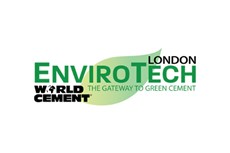Mothballing of Thrislington Lime Plant linked to steel closures
Published by Joseph Green,
Editor
World Cement,
The recent announcement to mothball the Lhoist Thrislington dolomitic lime production plant with 40 job losses, as a direct result of recent UK steel manufacturing site closures, highlights the similarity of issues faced by the lime and steel industry.
Both industries are highly energy intensive and face spiralling energy and carbon costs as a result of ‘green levies’. Like steel, lime is internationally traded and at present UK’s energy and carbon policies are diminishing the competitive position of the industry.
High calcium and dolomitic lime are used extensively as a flux for removing impurities in the production of iron and steel and, in total, 35% of all industrial lime and dolime production is sold directly to the industry. The lime industry, traditionally located in rural areas with limited other employment opportunities, is also an important supplier supporting the UK construction, manufacturing and agricultural sectors.
The British Lime Association (BLA), part of the Mineral Products Association (MPA), represents the interests of the 3 main UK lime manufacturers, covering more than 75% of the industrial lime sold in the UK. Over 1.25 million t of lime, made from quarried limestone or chalk, is produced every year with approximately 20% of sales exported to EU and non-EU countries.
Adapted from press release by Joseph Green
Read the article online at: https://www.worldcement.com/europe-cis/17122015/mothballing-thrislington-lime-plant-linked-steel-closures-199/
You might also like
The World Cement Podcast
A podcast series for professionals in the cement industry featuring short, insightful interviews. Subscribe on your favourite podcast app to start listening today.


